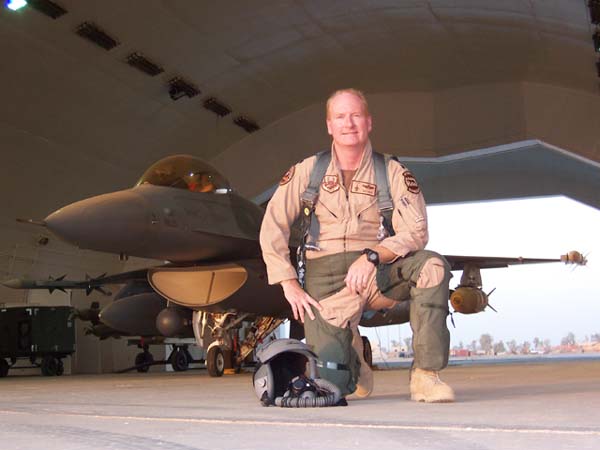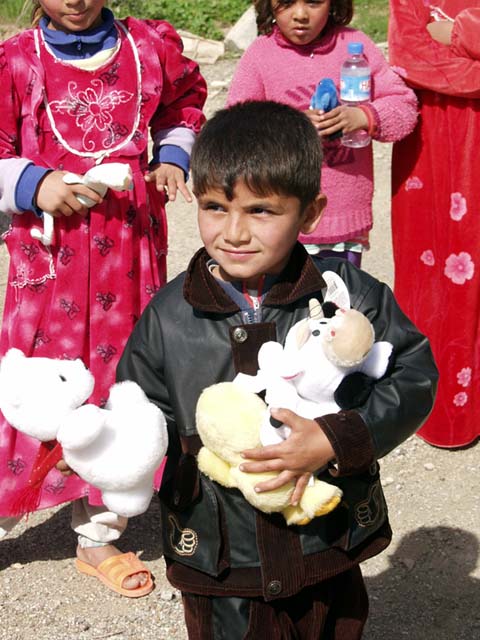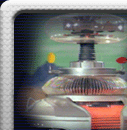
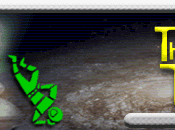


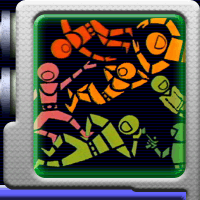
 |
|
| Club Gallery ->Member Photos ->Mike B Previous Next | |||
Mike B (B9-0036)
Iraq It's now three weeks since we arrived here at Iraq. I'll try to convey what it's been like over here, because there is quite a bit going on that is not being reported back home. I'll describe the types of missions we're flying, as well as some experiences that have shaped my impressions. At the moment the enemy forces are reluctant to openly engage Coalition soldiers, so we spend a great deal of time on armed patrol. The enemy is attempting to undermine confidence in the new Iraqi government by damaging oil pipelines and electrical power lines. We patrol day and night to detect and deter anyone attempting to damage these critical elements of Iraq's infrastructure. While on patrol we are armed with air-to-air and air-to-ground weapons and are ready to respond at a moment's notice to assist soldiers or Marines who may encounter armed resistance from the enemy. We call this Close Air Support, in which we bring precision air-to-ground weapons to bear on enemy forces attacking our ground troops. We also fly escort missions, providing air cover for military convoys that transport supplies vital to the operations of bases throughout the country. These convoys frequently come under attack by car bombs, so we search the roads ahead for traffic jams and other telltale signs of impending attack. Occasionally, we also execute preplanned attacks against known enemy operating sites. As in any conflict, not everything goes our way. Two days ago three soldiers were killed and two dozen injured here in a rocket attack that struck the base at midday. None of the casualties were from our unit, and they were the first at Balad in some time. One of our squadron officers was among the first on the scene, and he assisted with the care of the wounded. Such attacks are always imprecise; the enemy simply launches them in the general direction of the base, and then attempts to escape our retaliation. In this case they were caught. Others have gotten away, at least for now. Twice now I've been airborne when other bases were similarly attacked; our aircraft arrived promptly, searched for the culprits, and each time we were able to find people apparently fleeing the probable launch sites. In each case however, we were unable to confirm that those we were tracking were in fact responsible for the attacks. Therefore we did not attack them; unlike the enemy, we don't kill indiscriminately. Many times, things do go our way. I am happy to report that today witnessed the first time in our squadron's history that one of our pilots employed a weapon in combat (until recently we were exclusively an Air Defense fighter squadron for defense of the U.S.). He was part of a preplanned strike against an enemy weapons site. The attack was executed perfectly, and with great precision. A few days ago, more than 20 enemy fighters fled a building in which they were hiding and surrendered simply because they heard the sound of a jet fighter overhead. Last week, I was part of an operation that combined the versatility of our air power, the skill of Joint Tactical Air Controller and the resolve of the new Iraqi police force. I was directed to depart from my scheduled patrol and proceed to a station overhead a nearby city. It turned out to be one of the cities where we had tracked but been unable to engage the suspects days earlier. The Air Force Tactical Air Controller was the same one I'd worked with before, and he quickly summarized the situation: Iraqi police had discovered enemy agents attempting to plant a roadside bomb. A firefight ensued, and several Iraqi policemen were injured. The enemy split up and fled, some into town and some attempting to escape down a dry riverbed. The Controller passed coordinates and a description of each location, and my wingman and I split to cover each site. We provided overhead coverage and relayed what we were seeing through the Controller to the Iraqi police, who closed off the enemy's escape routes and gradually surrounded a house in which several enemy fighters were holed up. Eight were captured by the Iraqi police, along with some weapons. We hoped that they might have been among those who got away the week before. We landed after a five and one-half hour flight, still carrying our bombs but satisfied that we'd been able to support the Iraqis who are determined to root out these agents. The enemy is finding it increasingly difficult to target Coalition Forces, and seem to have shifted to easier targets. Iraqi citizens are being killed and injured in large numbers by these fanatics. Especially threatened are the officials of the new Iraqi government, but they refuse to be intimidated by the violence. So do the people of Iraq, who are putting their country back in business. Flying over Iraq, I find an amazing degree of activity. The highways are packed with traffic, and boats ply the Euphrates River. Pipelines flow and the cities are aglow from Basrah in the South to Mozul in the North. Workers are repairing and operating Iraq's entire infrastructure. Despite threats and acts of violence against them for associating with Coalition Forces, many Iraqis are friendly to us. Much of the work done on base is done by Iraqis from the nearby town of Balad. I usually try to greet them with some Arabic phrases I picked up from some Saudi students I taught in Air Force pilot training some years ago. They seem to appreciate the effort and respond with the traditional phrase and a smile. One strode up to me and proclaimed, "You speak good Arabic!" I was unable to tell him I'd just used up all my vocabulary. Last week I was sitting in the shade of a building while our generator was being repaired. A young Iraqi man, probably eighteen or so, came around the corner. He was helping to refurbish the building, and I said "Masah Al Khair". "Masah An Nour", he replied. We struck up a "conversation". Soon several of his friends, about the same ages showed up. They were eager to teach me new phrases. One pointed to the wings on my uniform, and asked if I was a "Guyahr", which I took to mean pilot as the word was accompanied by a swooshing hand and copious jet sounds. I tried to ask one boy if we wanted to be a pilot. He nodded vigorously, and I'm afraid he was hoping I'd be able to take him for a ride. Shortly I'd learned how to ask one's name, say thank you and good bye, and the words for food and tomorrow. Of course, they also wanted to exchange worthless Dinars for Dollars. I'm having a hard time spending any money over here, so I cheerfully forked over $5 for two 25 Dinar notes, knowing full well I was being taken. I had the boys sign the bills in Arabic, and the one with the best English wrote the names in English beneath. An older Iraqi man came by, apparently having heard that a foolish, rich American Guyahr was giving away dollars. I soon found out how well I'd been taken by the boys, as he was willing to part with 250 Dinars for only $2! He spoke no English, but he seemed compelled to show me something; he pulled his trousers aside to reveal an extremely nasty scar on his thigh. He pointed to it and said "Saddam". I also learned that "Sadiri" means friend. We all shook hands several times, and still wearing enthusiastic smiles they all agreed that "U.S.A., Iraq..Sadiri". I've attached a pair of photos. The first is of yours truly striking a casually heroic pose, and the other is of some Iraqi children. I close by reporting that the members of our squadron are all in good health (aside from some sniffles) and have been working tirelessly to support the mission over here. They have been doing their typical superb job, and morale is very high. Our F-16s have also been performing exceptionally well. Take care,
|
|||


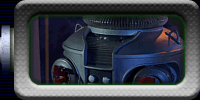





 Member
Photos
Member
Photos